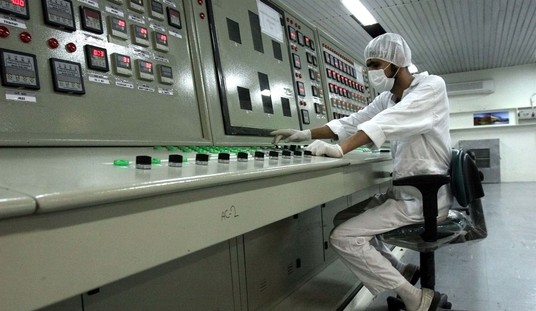In most countries, the future is impossible to predict, but the past doesn't change. In Russia, it's just the opposite.
President Vladimir Putin, when he is not busy restoring autocracy to a country that has known little else, has taken on the task of refreshing Russian history with a novel perspective -- his own. He is on record lamenting the collapse of the Soviet Union as "the greatest geopolitical catastrophe of the century." It was worse, apparently, than World War I, worse than World War II -- worse, even, than the creation of the Soviet Union.
Last year, the president informed a group of history teachers that Russia "has nothing to be ashamed of" and that it was their job to make students "proud of their motherland." His government has tried to help by commissioning guidelines and books that present a more balanced picture of Joseph Stalin, described in one approved volume as "the most successful Soviet leader ever."
That sentiment could be taken as ironic -- on the order of praising a slagheap as the most picturesque of its genre. In fact, Putin really wants to commend a dictator who, if he was not the most savage and destructive criminal of the 20th century, certainly ranks in the top three, with Hitler and Mao. The efforts at rehabilitation may be working.
One poll found that 54 percent of young Russians think Stalin was "a wise leader."
To reach that conclusion, you have to excuse or forget the biggest events of Stalin's quarter-century rule, which left vast piles of corpses. His first notable "achievement" was trying to raise agricultural output by forcing millions of peasant farmers into collective farms -- while wiping out supposedly prosperous farmers whom he condemned as vicious class enemies. In what a Marxist scholar later called "probably the most massive warlike operation ever conducted by a state against its own citizens," hordes of peasants were killed or sent to Siberia.
Recommended
The new textbooks suggest that Stalin's methods, though harsh, served the important need of bringing about economic progress. But the collectivization drive brought on a famine that was one of the worst the world has ever seen.
In Ukraine, shortages were so severe that starving people were driven to cannibalism to survive -- forcing authorities to post signs that said, "Eating dead children is barbarism." In combination with the mass executions and deaths in concentration camps, the famine cost more than 14 million people their lives.
But Stalin didn't attack only his class enemies. His allies were equally at risk. During the Great Terror of the 1930s, he launched a purge of close aides, officials as well as ordinary members of the Communist Party, secret police, diplomats and military commanders. This frenzy killed millions, many of them worked to death in the vast network of labor camps that became known as the Gulag Archipelago.
Putin's propaganda celebrates Stalin for winning World War II. But if not for his paranoia and gullibility, the war would have been far easier to win.
If Stalin's plans had worked out, the Soviet Union would not have stood against the Nazis. At the outset, he entered into an alliance with Hitler that allowed him to recover Russian land lost in World War I, annex various Baltic nations and swallow up a chunk of Poland.
His reward was to be double-crossed in 1941, when Germany invaded the Soviet Union. Writes historian Paul Johnson, "Stalin, who trusted nobody else, appears to have been the last human being on earth to trust Hitler's word." In the conflict that followed, there is no telling how many soldiers died because the Red Army had been purged of its best officers by Stalin.
The new texts compare Stalin to Otto von Bismarck, the "Iron Chancellor" who unified Germany in the 19th century. But though Bismarck fought his neighbors on the battlefield, he didn't make war on his people. The latter habit is what distinguishes Stalin. If his record is grounds for pride, what could possibly be grounds for shame?
Putin's people deserve sympathy for the burdens the past has placed on them, but those don't justify his attempt to promote self-deception. Germans have proved it is possible to build a thriving nation without being blind to one's own history. Russians should respond to this campaign not with pride but with fear. If a government can justify what Stalin did, it can justify anything it wants to do.

























Join the conversation as a VIP Member